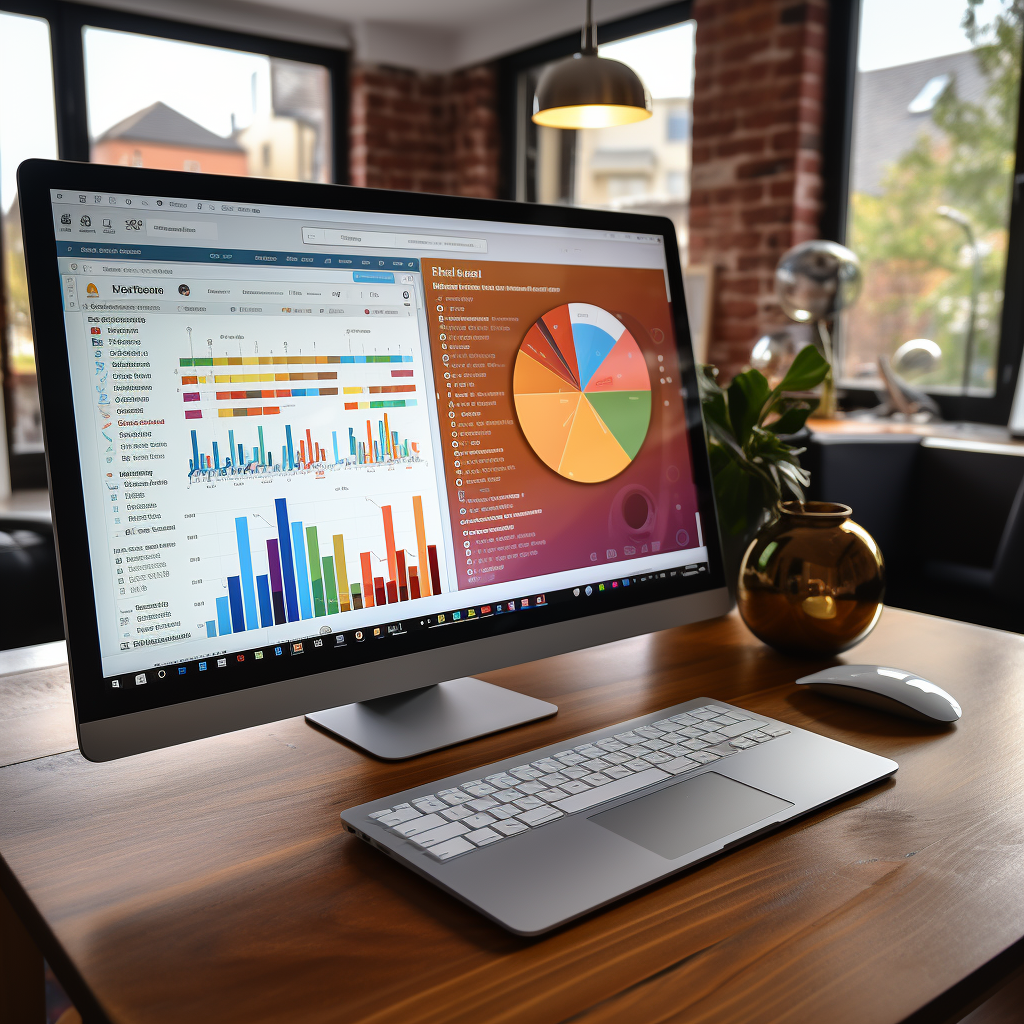SEO is divided into two main categories: On-Page SEO and Off-Page SEO.
Both are essential for improving a website’s visibility and attracting organic traffic. On-Page SEO focuses on optimizing elements within your website. Off-Page SEO involves activities outside your website to boost its authority and relevance.
Understanding the differences and how to implement both strategies effectively can significantly impact your website’s performance.
What is On-Page SEO?

On-Page SEO refers to the practice of optimizing individual web pages to rank higher and earn more relevant traffic in search engines. It involves various elements that you can control directly within your website.
These include content quality, keyword usage, meta tags, and internal linking. The goal is to make your website more understandable to search engines and more valuable to users.
High-quality content that answers users’ queries is a cornerstone of On-Page SEO.
Keywords should be strategically placed in titles, headings, and throughout the content. Meta tags, such as meta descriptions and title tags, provide search engines with information about your page’s content. Internal linking helps distribute page authority and improves navigation.
By focusing on these elements, you can enhance your website’s relevance and authority, leading to better rankings and increased organic traffic.
Key Elements of On-Page SEO
Several key elements contribute to effective On-Page SEO. Content quality is paramount. Your content should be informative, engaging, and relevant to your target audience.
Keyword optimization is another critical factor. Use keywords naturally within your content, titles, and headings. Meta tags, including title tags and meta descriptions, should be optimized with relevant keywords.
These tags help search engines understand the content of your pages.
Internal linking is also essential. It helps distribute page authority and improves user navigation. URL structure should be clean and descriptive, making it easier for search engines to index your pages. Image optimization involves using descriptive file names and alt text to help search engines understand the content of your images.
It’s one aspect of our overall SEO system we intergrate with AI in order to build quality content that also is good or the bots and satisfying the user.
Finally, mobile-friendliness and page speed are crucial for user experience and search engine rankings. By focusing on these elements, you can improve your website’s visibility and attract more organic traffic.
How Does Off-Page SEO Work?
Off-Page SEO involves activities outside your website that impact your rankings within search engine results pages. The primary focus is on building backlinks from reputable websites. Backlinks act as votes of confidence, signaling to search engines that your content is valuable and trustworthy. Social media engagement also plays a role in Off-Page SEO.
Sharing your content on social platforms can increase its visibility and attract more backlinks. Guest blogging on reputable websites can also help build your authority and generate backlinks. Influencer outreach involves collaborating with influencers to promote your content and attract more traffic. Online reviews and brand mentions can also impact your Off-Page SEO.
Positive reviews and mentions from reputable sources can enhance your website’s credibility. By focusing on these activities, you can improve your website’s authority and relevance, leading to higher rankings and increased organic traffic.
Differences Between On-Page and Off-Page SEO
On-Page and Off-Page SEO are two sides of the same coin, but they focus on different aspects of optimization. On-Page SEO involves optimizing elements within your website, such as content quality, keyword usage, meta tags, and internal linking.
The goal is to make your website more understandable to search engines and valuable to users. Off-Page SEO, on the other hand, involves activities outside your website that impact your rankings. The primary focus is on building backlinks from reputable websites.
Social media engagement, guest blogging, influencer outreach, and online reviews also play a role in Off-Page SEO. While On-Page SEO focuses on improving your website’s relevance and authority, Off-Page SEO aims to enhance your website’s credibility and trustworthiness.
Both strategies are essential for improving your website’s visibility and attracting organic traffic. By integrating both approaches, you can achieve maximum impact and improve your website’s performance.
Importance of Backlinks in Off-Page SEO

Backlinks are a crucial component of Off-Page SEO. They act as votes of confidence, signaling to search engines that your content is valuable and trustworthy. The quality and quantity of backlinks can significantly impact your website’s rankings.
High-quality backlinks from reputable websites carry more weight and can improve your website’s authority. Backlinks also drive referral traffic to your website, increasing your visibility and attracting more visitors.
Building backlinks involves various strategies, such as guest blogging, influencer outreach, and content promotion.
Guest blogging on reputable websites can help you earn high-quality backlinks and build your authority.
Influencer outreach involves collaborating with influencers to promote your content and attract more backlinks. Content promotion involves sharing your content on social media and other platforms to increase its visibility and attract backlinks.
By focusing on building high-quality backlinks, you can improve your website’s authority and rankings, leading to increased organic traffic.
Content Optimization Techniques for On-Page SEO
Content optimization is a critical aspect of On-Page SEO. High-quality content that answers users’ queries is essential for improving your website’s relevance and authority. Keyword optimization is a key factor in content optimization. Use keywords naturally within your content, titles, and headings.
Avoid keyword stuffing, as it can negatively impact your rankings. Meta tags, including title tags and meta descriptions, should be optimized with relevant keywords. These tags help search engines understand the content of your pages. Internal linking is also essential for content optimization. It helps distribute page authority and improves user navigation.
URL structure should be clean and descriptive, making it easier for search engines to index your pages. Image optimization involves using descriptive file names and alt text to help search engines understand the content of your images. By focusing on these content optimization techniques, you can improve your website’s visibility and attract more organic traffic.
Role of Social Media in Off-Page SEO
Social media plays a significant role in Off-Page SEO. Sharing your content on social platforms can increase its visibility and attract more backlinks. Social media engagement can also drive referral traffic to your website, increasing your visibility and attracting more visitors.
Building a strong social media presence involves creating and sharing high-quality content that resonates with your audience. Engaging with your audience through comments, likes, and shares can also enhance your social media presence.
Collaborating with influencers can help you reach a wider audience and attract more traffic to your website. Social media platforms also provide opportunities for content promotion and link building. By sharing your content on social media, you can increase its visibility and attract more backlinks. Social media engagement can also enhance your website’s credibility and trustworthiness.
By focusing on social media as part of your Off-Page SEO strategy, you can improve your website’s authority and rankings, leading to increased organic traffic.
How to Perform a Site Audit for On-Page SEO
Performing a site audit is essential for identifying and addressing On-Page SEO issues. A site audit involves analyzing various elements of your website to ensure they are optimized for search engines.
Start by evaluating your website’s content quality. Ensure your content is informative, engaging, and relevant to your target audience.
Analyze your keyword usage to ensure keywords are used naturally within your content, titles, and headings. Review your meta tags, including title tags and meta descriptions, to ensure they are optimized with relevant keywords.
Check your internal linking structure to ensure it helps distribute page authority and improves user navigation. Evaluate your URL structure to ensure it is clean and descriptive.
Analyze your website’s mobile-friendliness and page speed, as these factors are crucial for user experience and search engine rankings. Use tools like Google Analytics and Google Search Console to identify and address any technical issues. By performing a site audit, you can identify and address On-Page SEO issues, improving your website’s visibility and attracting more organic traffic.
Common On-Page SEO Mistakes to Avoid
Several common On-Page SEO mistakes can negatively impact your website’s rankings. Keyword stuffing is a common mistake. It involves overusing keywords in your content, which can lead to penalties from search engines.
Poor content quality is another common mistake. Your content should be informative, engaging, and relevant to your target audience. Neglecting meta tags, including title tags and meta descriptions, can also impact your rankings.
These tags should be optimized with relevant keywords. Poor internal linking structure can affect user navigation and page authority distribution. Ensure your internal links are relevant and help users navigate your website.
Poor URL structure can also impact your rankings. URLs should be clean and descriptive, making it easier for search engines to index your pages. Neglecting mobile-friendliness and page speed can negatively impact user experience and search engine rankings. By avoiding these common On-Page SEO mistakes, you can improve your website’s visibility and attract more organic traffic.
Measuring the Success of Off-Page SEO Efforts
Measuring the success of your Off-Page SEO efforts is essential for understanding their impact and making necessary adjustments. Several metrics can help you evaluate your Off-Page SEO performance.
Backlink quality and quantity are crucial metrics. High-quality backlinks from reputable websites carry more weight and can improve your website’s authority. Referral traffic is another important metric. It measures the number of visitors coming to your website from external sources. Social media engagement, including likes, shares, and comments, can also indicate the success of your Off-Page SEO efforts.
Brand mentions and online reviews can impact your website’s credibility and trustworthiness. Use tools like Google Analytics and Google Search Console to track these metrics and identify areas for improvement.
By measuring the success of your Off-Page SEO efforts, you can understand their impact and make necessary adjustments to improve your website’s authority and rankings.
Integrating On-Page and Off-Page SEO for Maximum Impact
Integrating On-Page and Off-Page SEO is essential for achieving maximum impact. Both strategies complement each other and contribute to improving your website’s visibility and attracting organic traffic.
By focusing on both strategies, you can enhance your website’s relevance, authority, credibility, and trustworthiness. Start by optimizing your website’s content, keywords, meta tags, and internal linking. Then, focus on building high-quality backlinks, engaging with your audience on social media, and collaborating with influencers.
Use tools like Google Analytics and Google Search Console to track your performance and make necessary adjustments. By integrating On-Page and Off-Page SEO, you can achieve maximum impact and improve your website’s performance.
Conclusion
SEO is a vital aspect of digital marketing. On-Page and Off-Page SEO are both essential for improving your website’s visibility and attracting organic traffic.
On-Page SEO focuses on optimizing elements within your website, while Off-Page SEO involves activities outside your website. Both strategies complement each other and contribute to improving your website’s relevance, authority, credibility, and trustworthiness.
By focusing on both On-Page and Off-Page SEO, you can achieve maximum impact and improve your website’s performance. Use tools like Google Analytics and Google Search Console to track your performance and make necessary adjustments.